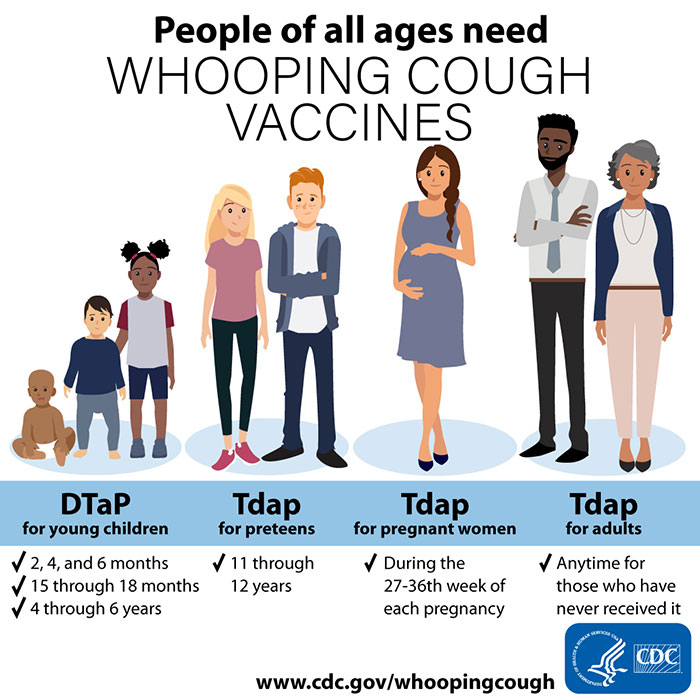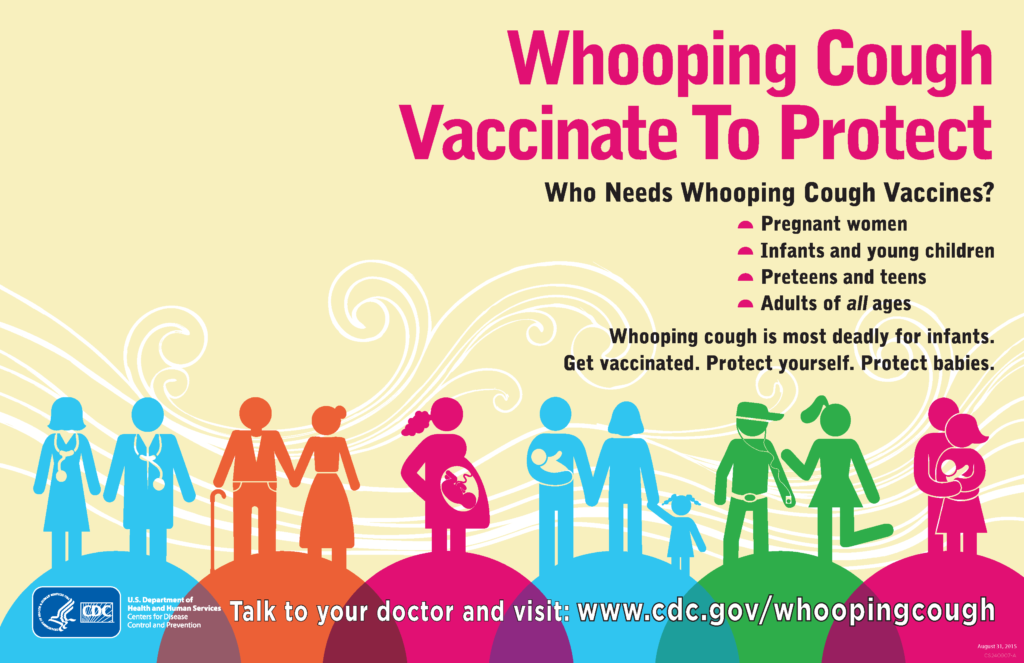Pertussis, or whooping cough, is a highly contagious respiratory illness spread by coughing and sneezing. It affects people of all ages but can be most serious in infants and those with chronic diseases.

The early symptoms are similar to a common cold: runny nose, sneezing, low-grade fever and coughing. After 1-2 weeks, the cough often gets worse, changing from a dry, hacking cough to bursts of uncontrollable, sometimes violent, coughing. During a coughing episode, it might be temporarily impossible to take a breath because of the intensity and repetition of the coughs. When finally able to breathe, the person might take a sudden gasp of air, which can cause a “whooping” sound. Vomiting and exhaustion can often follow a coughing spell. For more information about pertussis, call 859-899-5222.
The health department recommends preventive antibiotics for high-risk people who are exposed to pertussis. This includes people with a chronic illness or weakened immune system and those who live in households with the following: a family member with a chronic illness or weakened immune system, an infant or a pregnant woman.
Any children with symptoms of pertussis should stay home from school/daycare and visit their health care provider for evaluation, even if they have previously been vaccinated. If found to have probable or confirmed pertussis, they should remain out of school/daycare until completion of their antibiotics.
The vaccine against pertussis is part of the routine childhood vaccination series and is required for school entry. A booster dose, called Tdap, is required for children entering middle school. Anyone 11 years of age and older who has not received the Tdap vaccine should call their primary care provider or the health department at 859-288-2483 for information about vaccine availability. At the health department, these will be same-day appointments (no walk-ins), depending on eligibility.
The vaccine is effective, however immunity may decrease over time, making the booster important for older children and adults.

